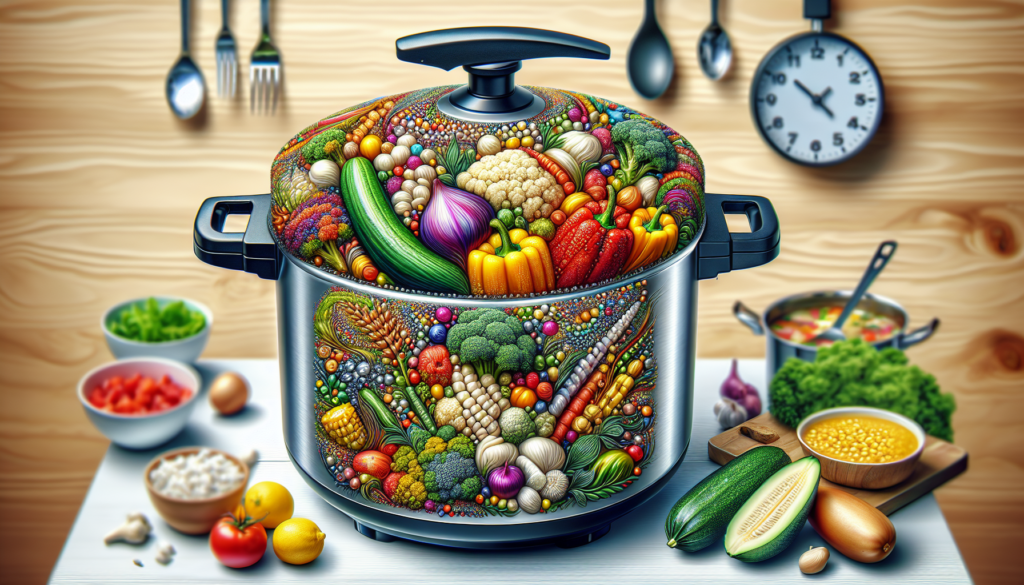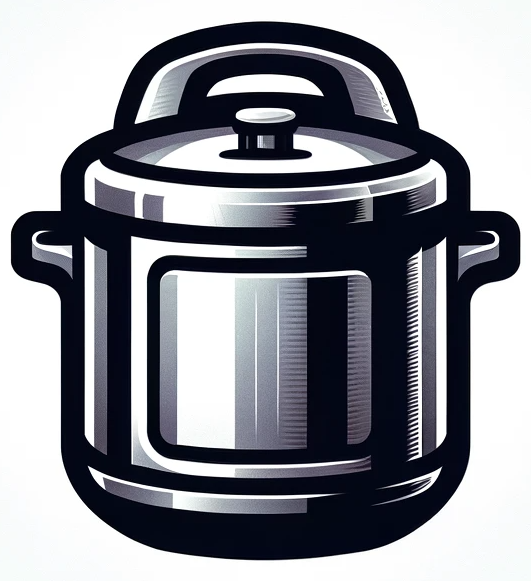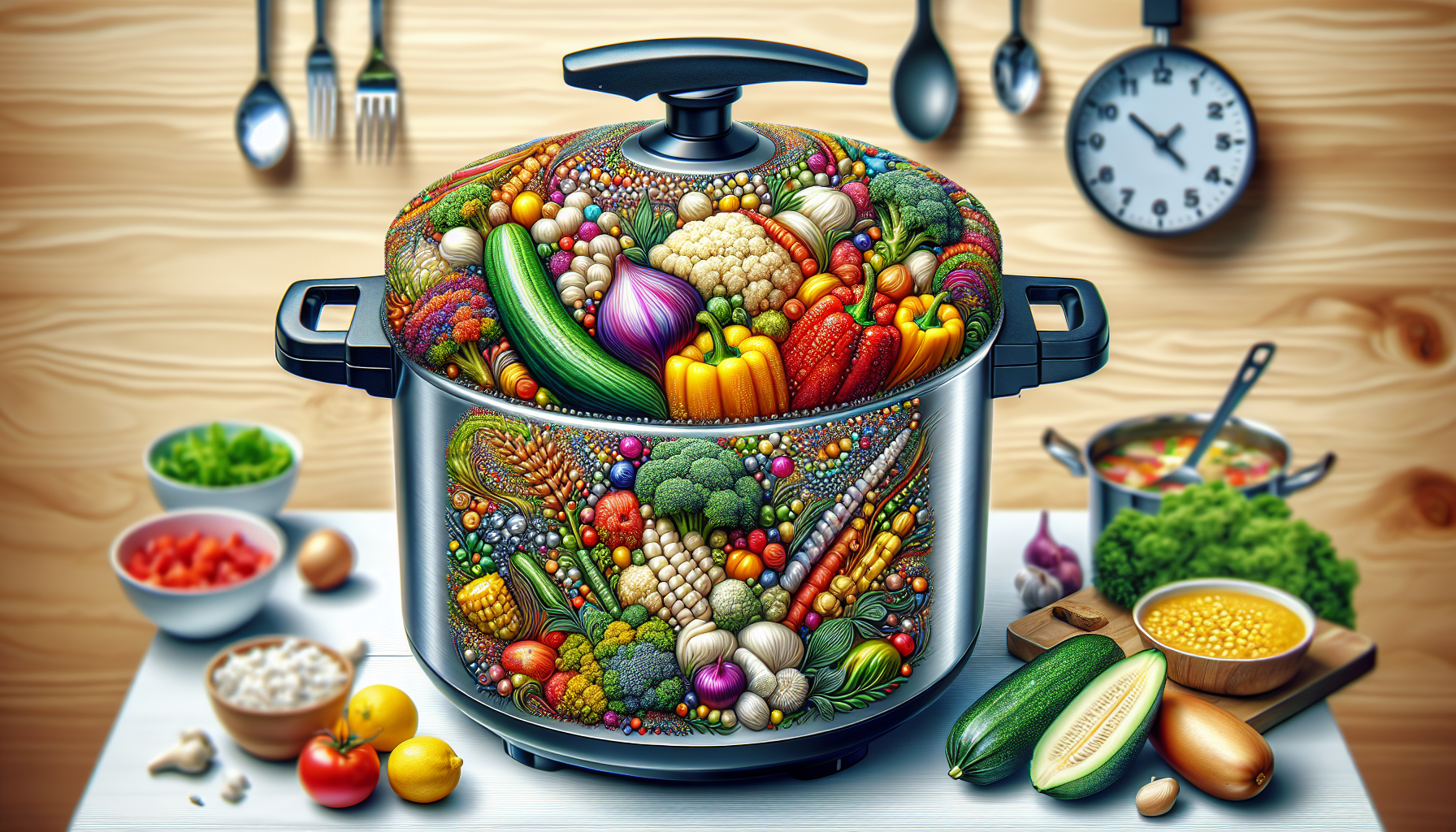Are you a fan of using a pressure cooker in your kitchen? If so, you might have wondered whether this popular cooking method actually destroys essential nutrients in your food. In this article, we will explore the question of whether cooking in a pressure cooker compromises the nutritional value of your meals. We’ll examine different factors that can impact nutrient retention and provide you with a comprehensive understanding of how pressure cooking affects the goodness in your dishes.

CHECK OUT PRESSURE COOKERS ON AMAZON
The Basics of Pressure Cooking
Definition of pressure cooking:
Pressure cooking is a cooking technique that involves the use of a sealed pot with high pressure, which raises the boiling point of water and allows food to cook faster. By creating a pressurized environment, pressure cookers are able to cook food more rapidly and efficiently compared to traditional cooking methods.
Advantages of pressure cooking:
Pressure cooking offers numerous advantages that make it a popular choice among home cooks. Firstly, it significantly reduces cooking time, making it ideal for busy individuals. Pressure cooking also requires less water and energy compared to other cooking methods, which makes it an environmentally-friendly option. Additionally, pressure cooking helps to retain the flavors, colors, and textures of food, resulting in delicious and visually appealing dishes. Lastly, pressure cookers are versatile appliances that can be used for various cooking techniques, such as steaming, braising, and even baking.
How pressure cooking works:
Pressure cookers work by creating a sealed environment that traps steam and increases pressure. This increased pressure raises the boiling point of water from 212°F (100°C) to approximately 250°F (121°C) or higher, depending on the pressure cooker model. The higher temperature and increased pressure inside the cooker allows food to cook faster. As the food cooks, steam builds up, causing the pressure to rise, and a pressure release valve ensures that the pressure remains stable within the cooker. Once the desired cooking time has been reached, the pressure can be rapidly released or slowly released through a natural release method.
Effect of Pressure Cooking on Nutrients
Introduction to nutrient loss:
There is a common concern that cooking methods, including pressure cooking, may lead to nutrient loss in foods. While it is true that cooking processes can cause some reduction in nutrient content, it is important to understand that the extent of nutrient loss depends on various factors such as cooking time, temperature, and the type of food being cooked. However, pressure cooking is generally considered to be a favorable method when it comes to nutrient retention.
The impact of heat on nutrients:
Heat is known to affect the nutrient content of food. Certain vitamins, such as vitamin C and B vitamins, are sensitive to heat and can be easily destroyed or degraded during cooking. However, not all nutrients are affected in the same way. Minerals, for example, are generally stable and less affected by heat. It is crucial to consider the specific nutrient profiles of foods and the impact of cooking methods when aiming to preserve nutrient content.
Pressure cooking and nutrient retention:
Pressure cooking is generally considered a gentle cooking method that helps to retain nutrients effectively. The shorter cooking times and reduced exposure to oxygen can help minimize the loss of vitamins and other heat-sensitive compounds. The sealed environment of the pressure cooker also helps prevent the escape of water-soluble vitamins and minerals. While some nutrient loss may still occur, pressure cooking can be a great option when it comes to preserving the nutritional value of cooked foods.
Temperature and Cooking Time
Impact of temperature on nutrient loss:
The temperature at which food is cooked plays a significant role in nutrient retention. High temperatures can lead to the degradation or destruction of certain nutrients, particularly water-soluble vitamins. It is important to find a balance between cooking food thoroughly and minimizing nutrient loss.
Effect of cooking time on nutrients:
Cooking time also influences nutrient retention. Prolonged cooking can result in greater nutrient loss, especially for heat-sensitive vitamins and enzymes. Therefore, reducing cooking time can help preserve more nutrients. Pressure cooking excels in this aspect, as it significantly reduces cooking time compared to other traditional cooking methods.
Water-Soluble Vitamins
The vulnerability of water-soluble vitamins:
Water-soluble vitamins, such as vitamin C and B vitamins, are especially vulnerable to heat and can be easily lost during cooking. These vitamins are crucial for maintaining good health and play important roles in energy metabolism, immune function, and overall well-being.
Effect of pressure cooking on water-soluble vitamins:
Fortunately, pressure cooking can help minimize the loss of water-soluble vitamins. The shorter cooking time and lower exposure to oxygen in a sealed pressure cooker can help retain more of these vital nutrients compared to longer cooking methods. Although some water-soluble vitamin loss may still occur, pressure cooking is typically a better option for preserving the nutritional value of foods rich in these vitamins.
Minimizing nutrient loss of water-soluble vitamins:
To further minimize nutrient loss of water-soluble vitamins, it is advisable to cut food into larger chunks rather than small pieces. This helps to reduce the surface area exposed to heat and oxygen, thus preserving more nutrients. Additionally, minimizing the amount of water used for pressure cooking and avoiding overcooking can also help retain the water-soluble vitamins present in the food.
Fat-Soluble Vitamins
Stability of fat-soluble vitamins:
Unlike water-soluble vitamins, fat-soluble vitamins, such as vitamins A, D, E, and K, are more stable when exposed to heat. These vitamins are essential for various bodily processes, including vision, bone health, and immune function.
Impact of pressure cooking on fat-soluble vitamins:
Pressure cooking has a relatively minor impact on fat-soluble vitamins. Since these vitamins are less sensitive to heat, they are generally well-preserved during the pressure cooking process. However, prolonged cooking times or high temperatures can still result in some loss of fat-soluble vitamins.
Tips to retain fat-soluble vitamins:
To retain as much of the fat-soluble vitamins as possible, it is recommended to limit cooking time and avoid overcooking. Adding fat sources, such as oils or butter, to the pressure cooker can also enhance the absorption of fat-soluble vitamins by the body. However, it is important to be mindful of portion sizes and overall fat intake for a balanced and healthy diet.
Protein Denaturation
Understanding protein denaturation:
Proteins are essential macromolecules that play critical roles in the body, including muscle growth and repair, enzyme function, and immune support. However, proteins are susceptible to denaturation, which can occur during cooking processes.
Effects of pressure cooking on proteins:
Pressure cooking can denature proteins to some extent, resulting in changes in their structure and potentially altering their nutritional properties. However, pressure cooking is generally considered a gentle cooking method that minimizes protein denaturation compared to other high-heat methods like frying or grilling.
Methods to preserve protein quality:
To preserve protein quality during pressure cooking, it is recommended to use cuts of meat that are naturally tender or marbled with fat. This can help minimize the potential negative effects of protein denaturation. It is also important to avoid overcooking proteins, as excessive cooking times can lead to tougher, less palatable results.
Antioxidants and Phytochemicals
Why antioxidants and phytochemicals are important:
Antioxidants and phytochemicals are compounds found in plant-based foods that offer numerous health benefits. They help neutralize harmful free radicals in the body, reduce inflammation, and support overall well-being. Including these compounds in the diet is essential for a healthy lifestyle.
How pressure cooking affects antioxidants:
Pressure cooking can affect the antioxidant content in foods, as some antioxidants are sensitive to heat and may be lost during the cooking process. However, the actual impact on antioxidant levels depends on several factors, including the specific antioxidant, cooking time, and temperature.
Preserving antioxidants and phytochemicals:
To preserve antioxidants and phytochemicals during pressure cooking, it is advisable to choose vibrant, colorful fruits and vegetables that are rich in these compounds. Additionally, using shorter cooking times and avoiding excessive heat can help retain more antioxidants. If possible, using a natural release method instead of a rapid release method can also help to better preserve the antioxidant content.
Mineral Retention
The influence of pressure cooking on minerals:
Pressure cooking has a minimal impact on mineral retention compared to other cooking methods. While some minerals can leach out into the cooking liquid, the reduced cooking time and sealed environment of the pressure cooker help to minimize mineral loss.
Factors affecting mineral retention:
The type of food being cooked and the cooking time can influence mineral retention. Foods that are more acidic, such as tomatoes or citrus fruits, may experience greater mineral loss during pressure cooking compared to less acidic foods. It is also important to avoid prolonged cooking times, as this can lead to more minerals being lost.
Strategies to retain minerals:
To retain minerals during pressure cooking, it is recommended to minimize the amount of water used for cooking. This helps to prevent excessive leaching of minerals into the cooking liquid. Additionally, consuming the cooking liquid or broth can help ensure that any minerals that do leach out are still consumed.
CHECK OUT PRESSURE COOKERS ON AMAZON
Fiber and Carbohydrates
The impact of pressure cooking on fiber:
Fiber is an essential component of a healthy diet, aiding in digestion, promoting satiety, and maintaining bowel regularity. Pressure cooking generally has a minimal impact on fiber content, as the cell walls of plant-based foods may actually soften and become more digestible during the cooking process.
Effect of pressure cooking on carbohydrates:
Carbohydrates are the body’s primary source of energy, and their content in foods can be affected by cooking methods. Pressure cooking does not significantly impact carbohydrate content, as the cooking process primarily affects the texture and digestibility of carbohydrates rather than their actual nutritional composition.
Retaining fiber and carbohydrates:
To retain fiber during pressure cooking, it is recommended to avoid excessive cooking times, as prolonged cooking can break down the fiber content of certain vegetables. Additionally, using minimal water and avoiding over-mashing or pureeing can help maintain the desired texture and fiber content of cooked foods. It is also important to include a variety of whole grains, legumes, and fruits and vegetables in the diet to ensure an adequate intake of fiber and carbohydrates.
Overall Nutrient Loss
Cumulative nutrient loss in pressure cooking:
While pressure cooking is generally considered a favorable cooking method for nutrient retention, it is important to acknowledge that some nutrient loss may still occur. The extent of nutrient loss depends on various factors, including cooking time, temperature, and the specific food being cooked.
Comparing nutrient loss in different cooking methods:
When comparing pressure cooking to other traditional cooking methods, it is generally found to be more effective in preserving the nutritional value of foods. High-heat methods, such as frying or grilling, tend to cause significantly more nutrient loss due to prolonged exposure to heat. Steaming and boiling, while gentler than high-heat methods, can leach out more water-soluble vitamins compared to pressure cooking.
In conclusion, pressure cooking is a convenient and efficient cooking technique that can help minimize nutrient loss in foods. While some vitamins and other heat-sensitive compounds may still be affected, pressure cooking generally provides a balance between cooking food thoroughly and retaining its nutritional value. By following recommended cooking times, using the appropriate amount of water, and selecting nutrient-rich ingredients, pressure cooking can be an excellent addition to a healthy and well-rounded diet.

